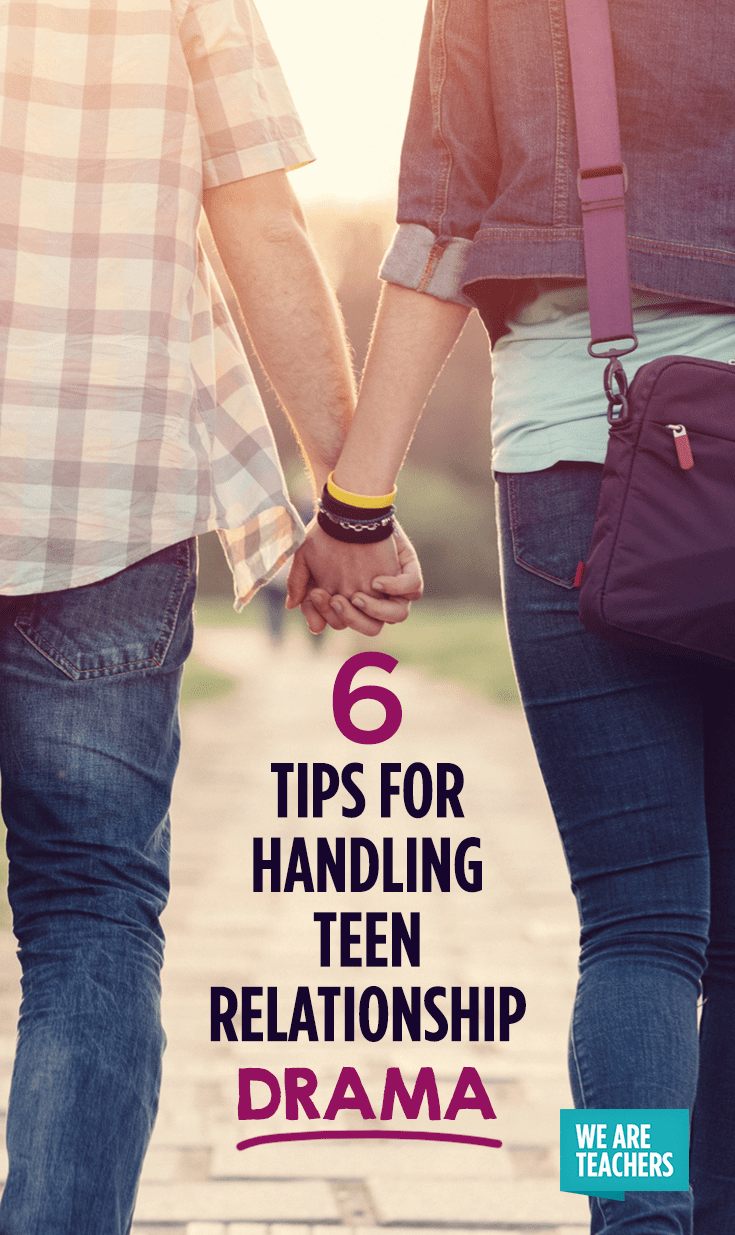Ah, young love. It’s pretty adorable to see two of your teenage students wistfully holding hands or batting eyelashes from across the room, at least until their hormone-heightened drama begins to interfere with learning. Romantic relationships among your students are inevitable in high school and even middle school, but knowing where to step in to teen relationship drama and where to stay out can be tricky. Here are some tips that have helped me be a better teacher to students experiencing the joy and heartbreak of young love.
1. Acknowledge their feelings.
Your students may look like babies to you, but in their minds, their relationships are very adult. I’ve seen letters sent between 10-year-olds that put my husband’s anniversary cards to shame. Don’t downplay or dismiss their feelings. Acknowledge that they are real, and your students will be more likely to keep you clued in to their lives.
2. Be a resource.
Both girls and boys may approach you for advice or to share excitement about their relationship. If a question makes you uncomfortable, try to redirect them to the right resource such as a counselor or parent. The most important thing to keep in mind is that if a student is sharing feelings with you, you have done your job to earn their trust.
3. Preserve the classroom as a neutral zone.
Try to minimize drama that happens outside the classroom from coming into it. Teen relationships play out over lunch break or social media and your students may come back to class unfocused. If you notice that behavior, step in and talk to them before the rest of the day is lost.
4. Take time to listen.
When a teen heart breaks, it breaks hard. As you would with any distressed child, if a student in your classroom is visibly upset over a relationship, give them a few minutes of your time. You may be a person in that moment who can be a helpful ear and support.
5. Step in when necessary.
Teachers are in a position that many parents envy. We see their children as they socialize naturally and can usually interfere without damaging our relationship with students. If you see a student mistreating his or her boyfriend or girlfriend, step in and take the appropriate action. By monitoring behavior, you can help prevent bad habits from forming at a young age.
6. Respect their privacy.
Remember, whether you’re 14 or 45, love is love. Respect your students’ feelings as well as their privacy to the extent that it’s appropriate.
Dealing with teen relationship drama in your classroom can be distracting for everyone involved. Be supportive and watchful and you’ll help minimize the drama … or maybe even get the wedding invite in 20 years.


